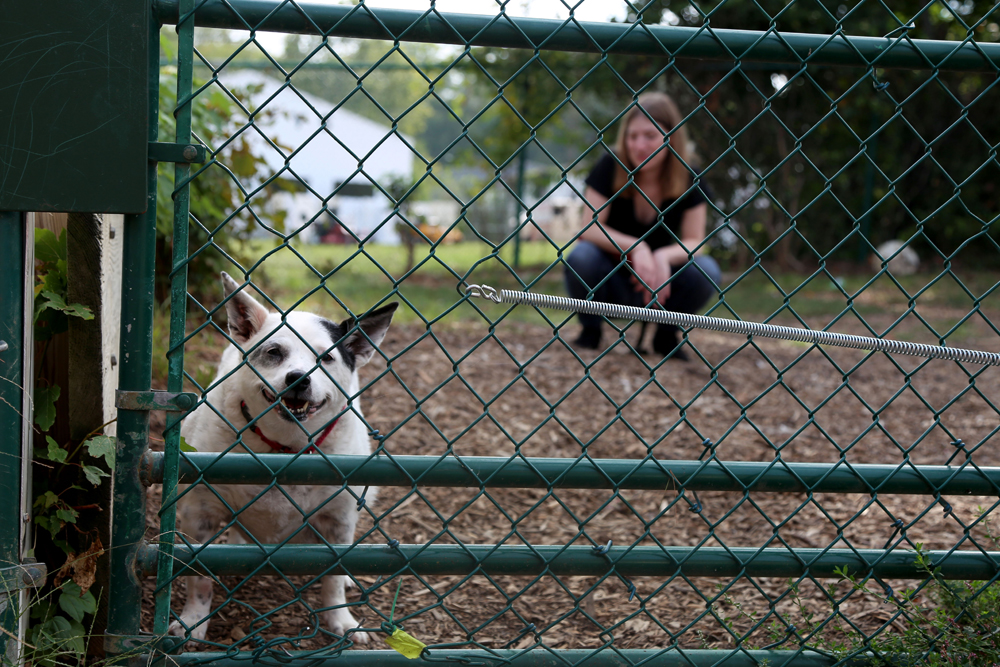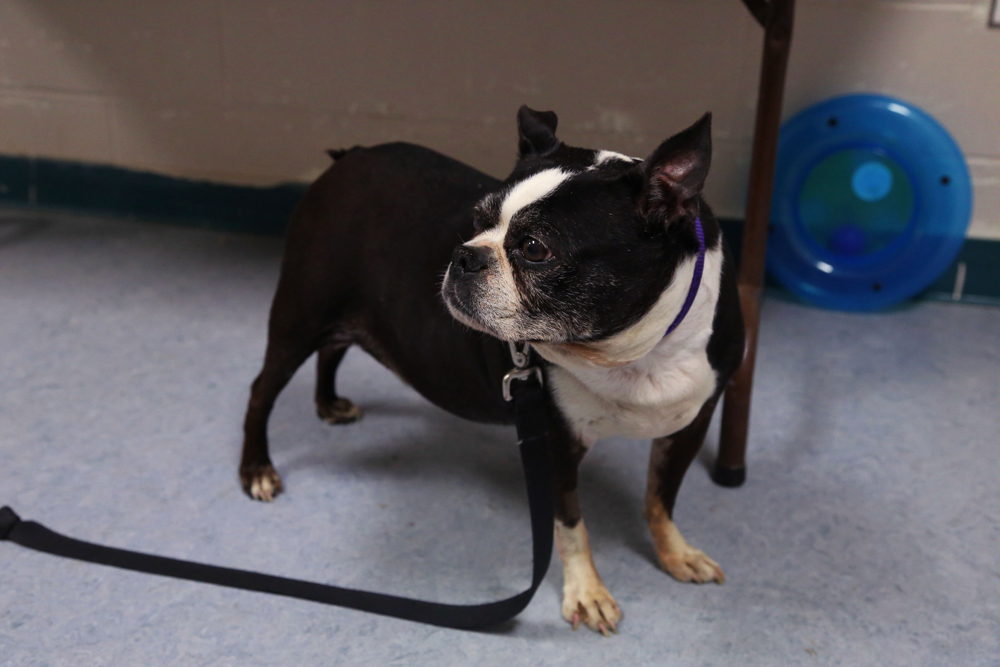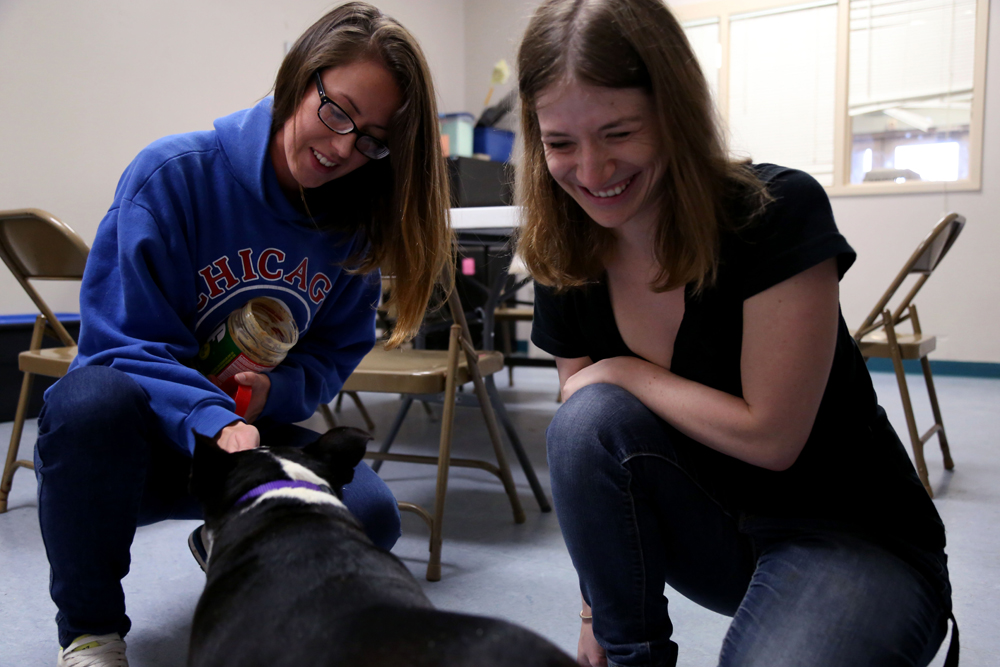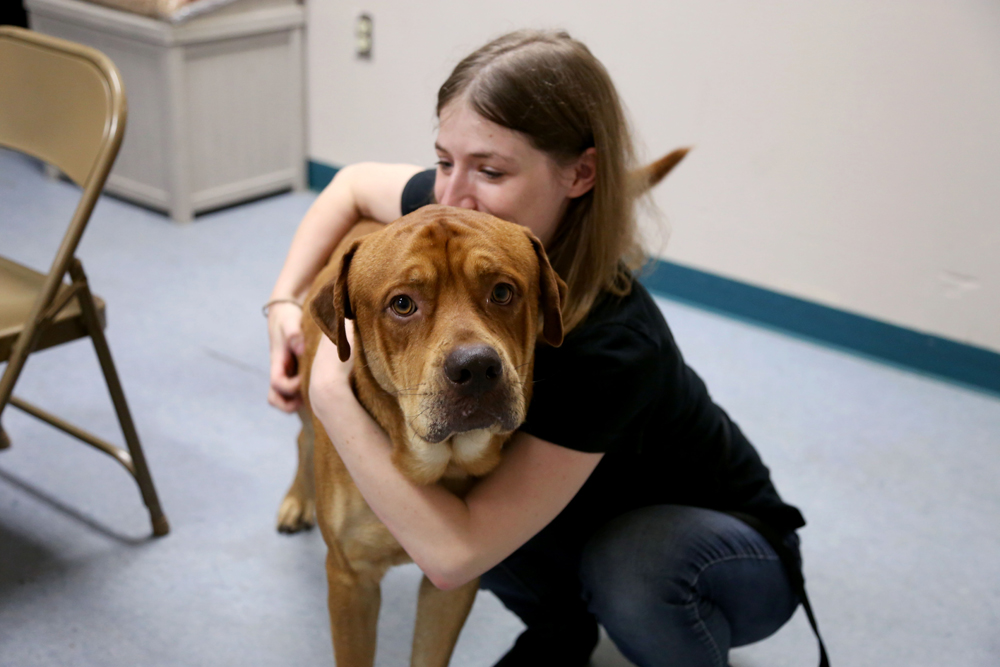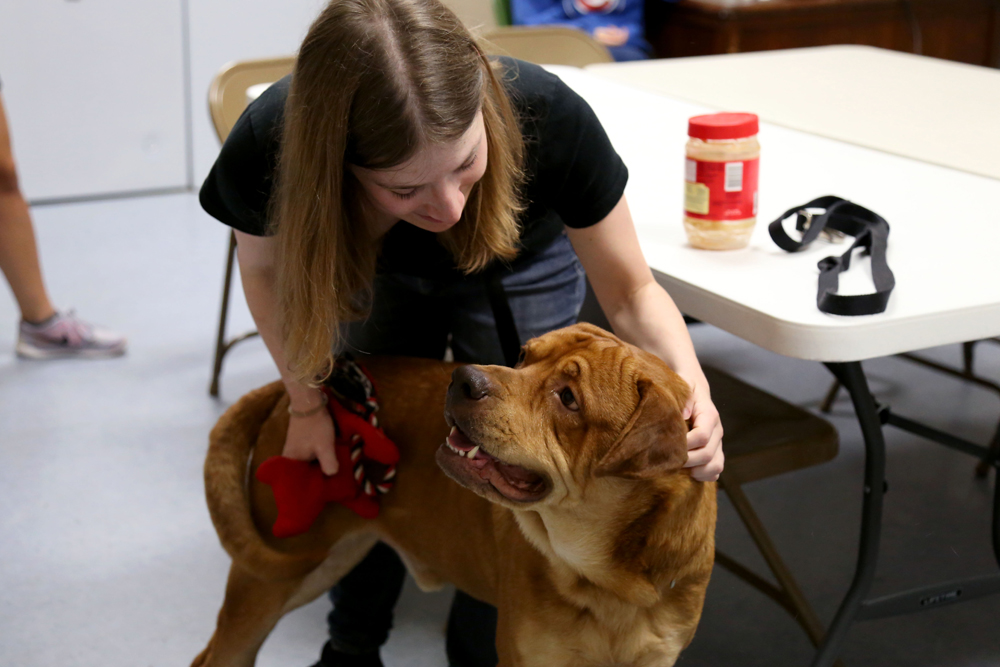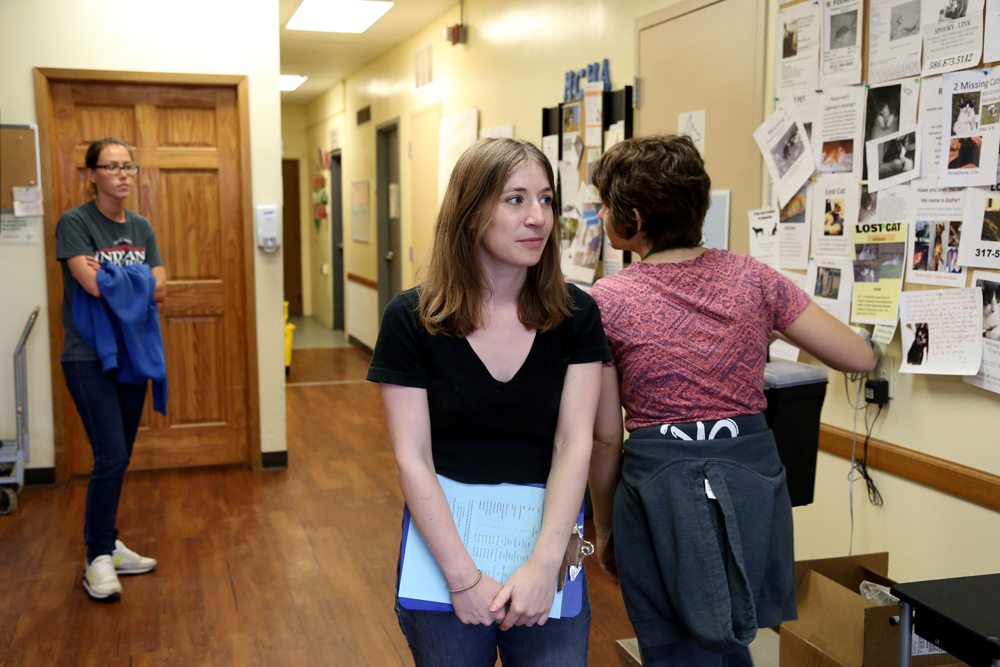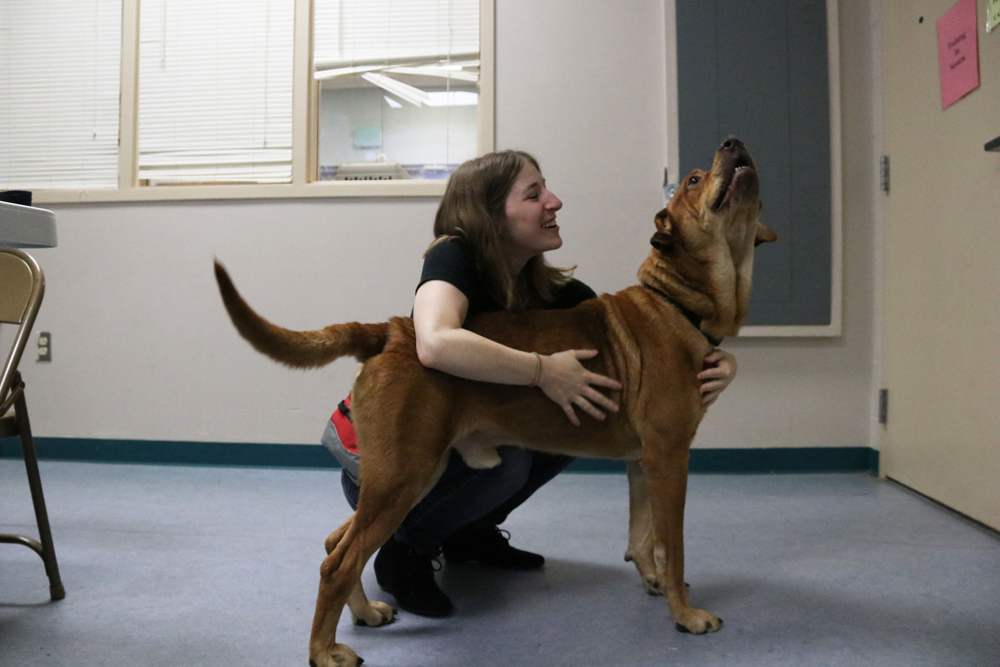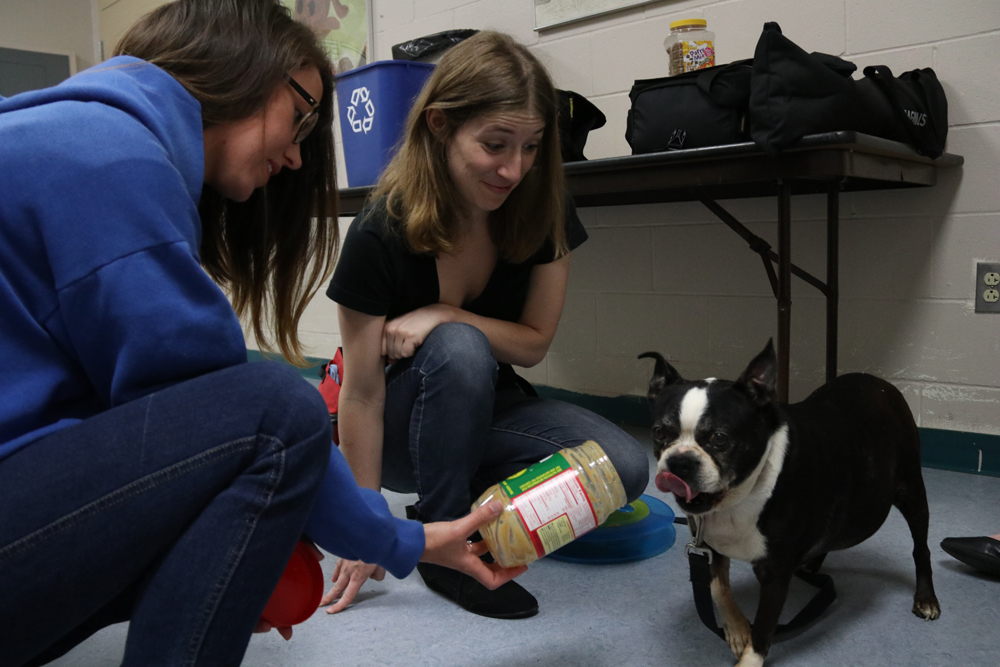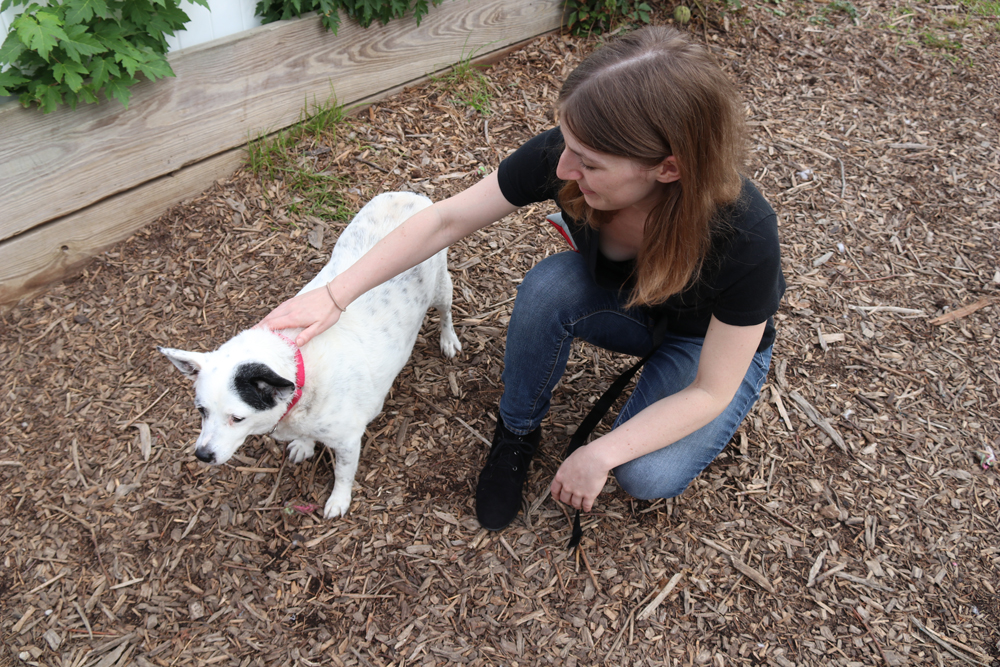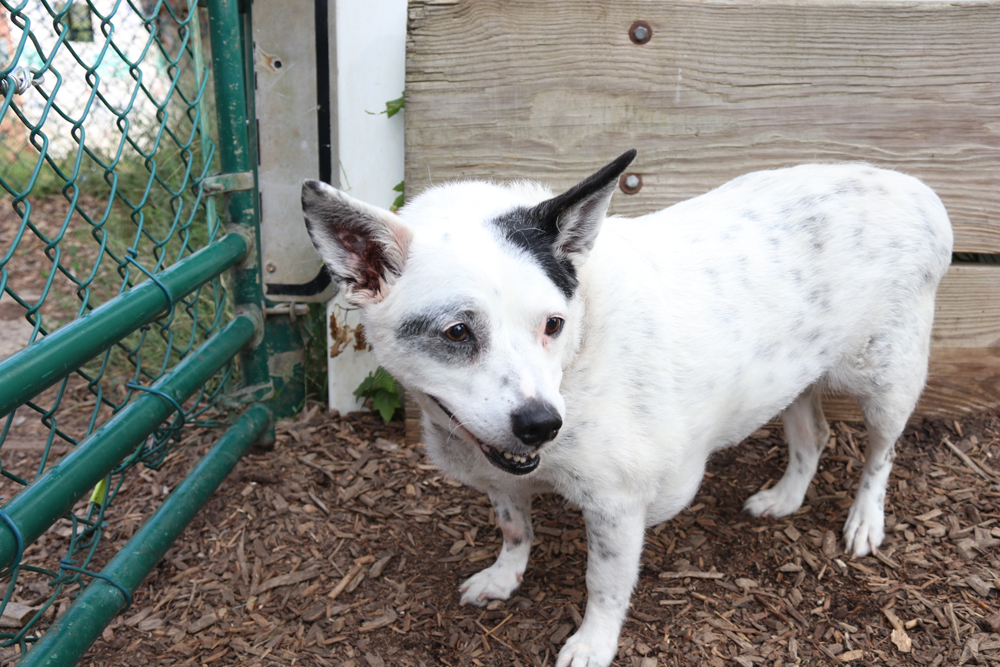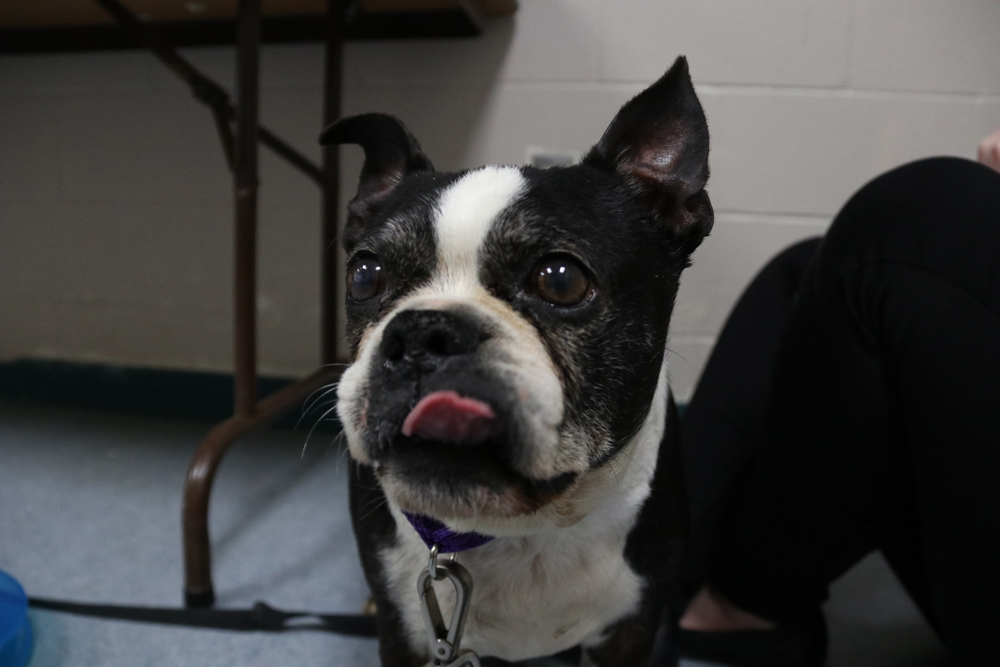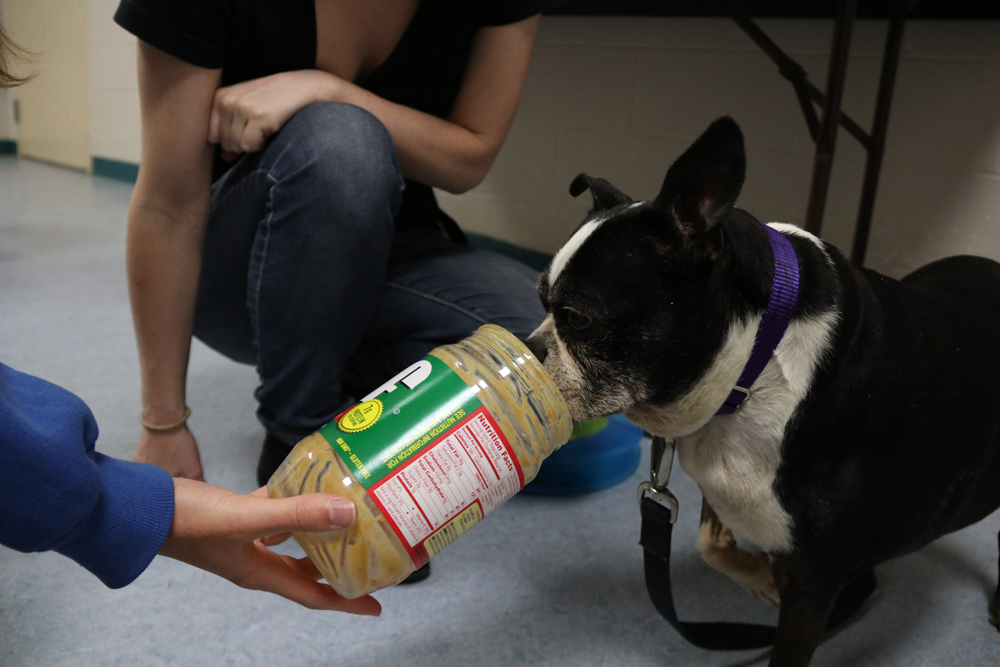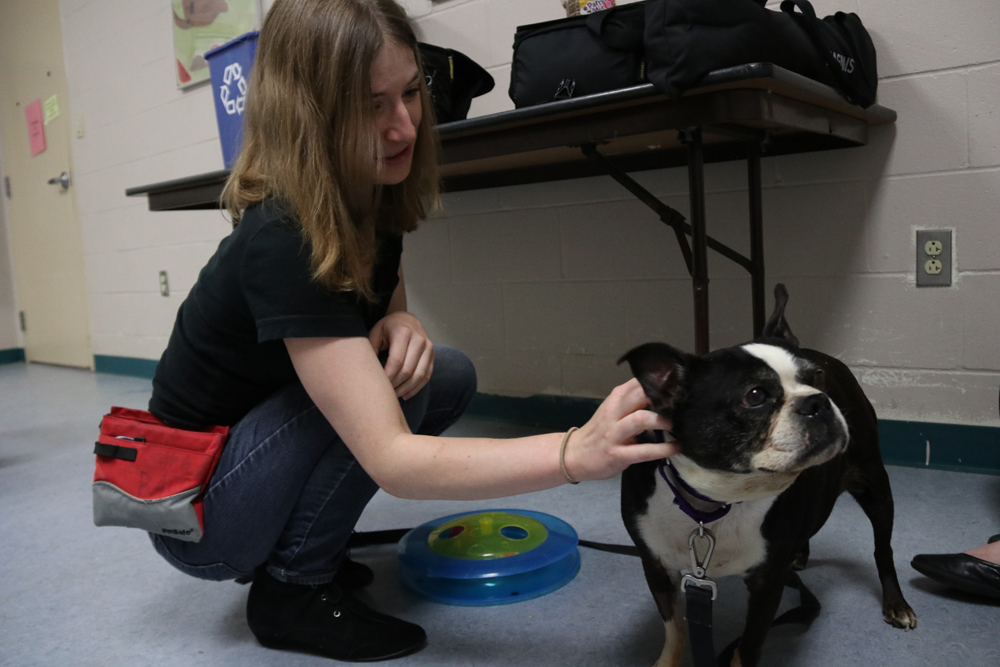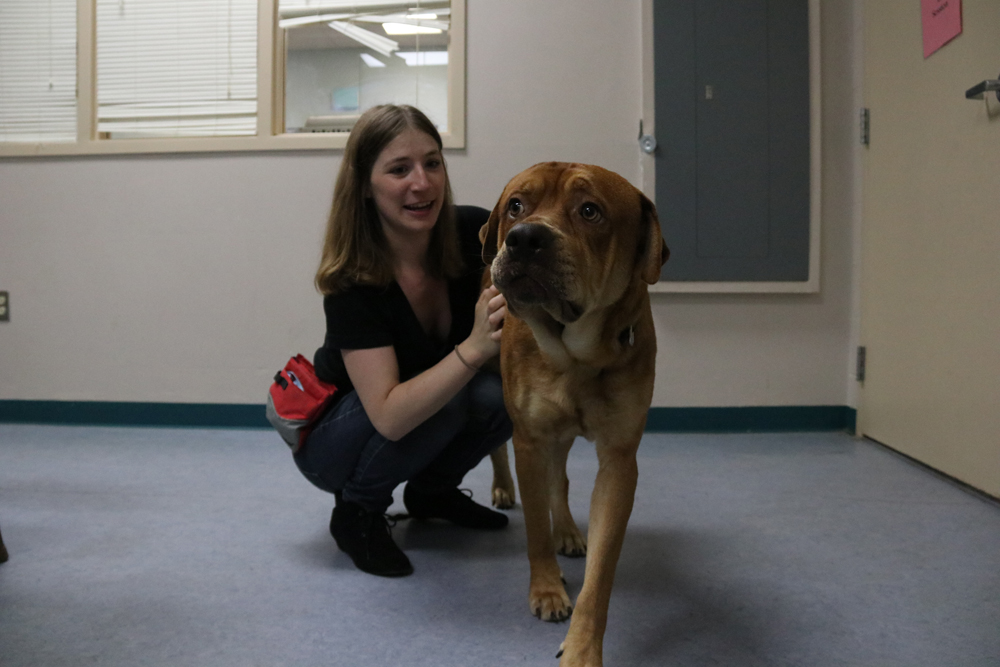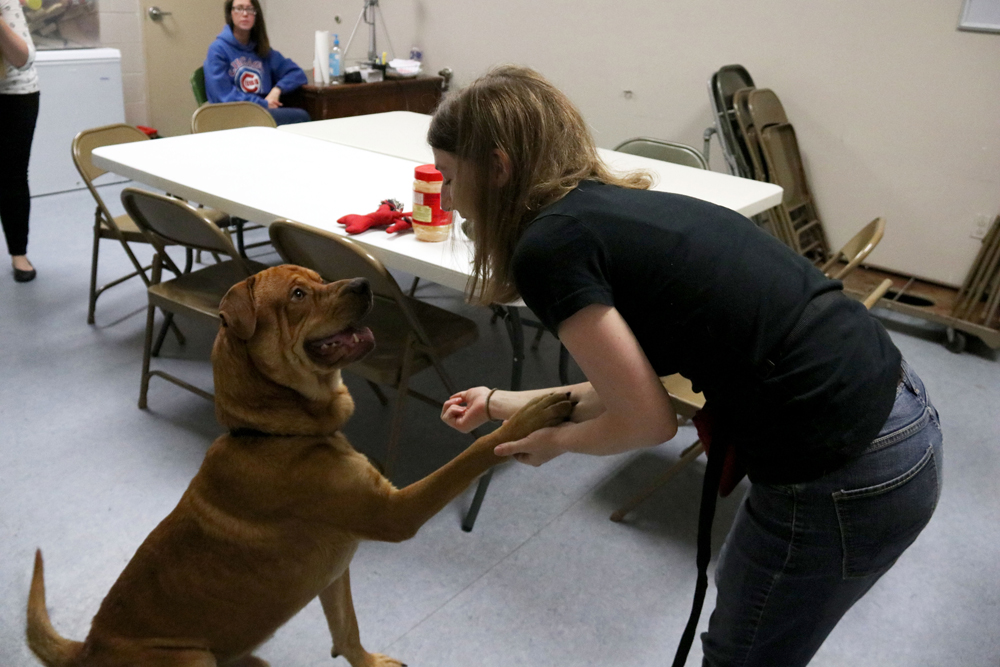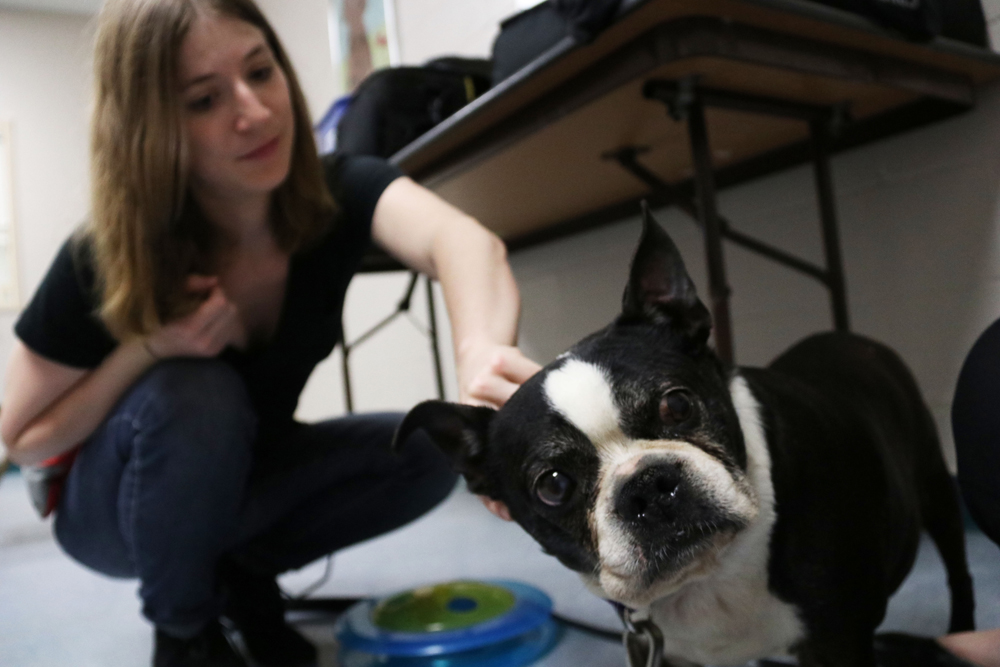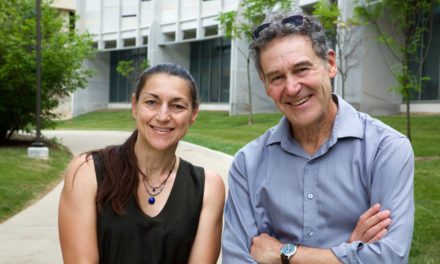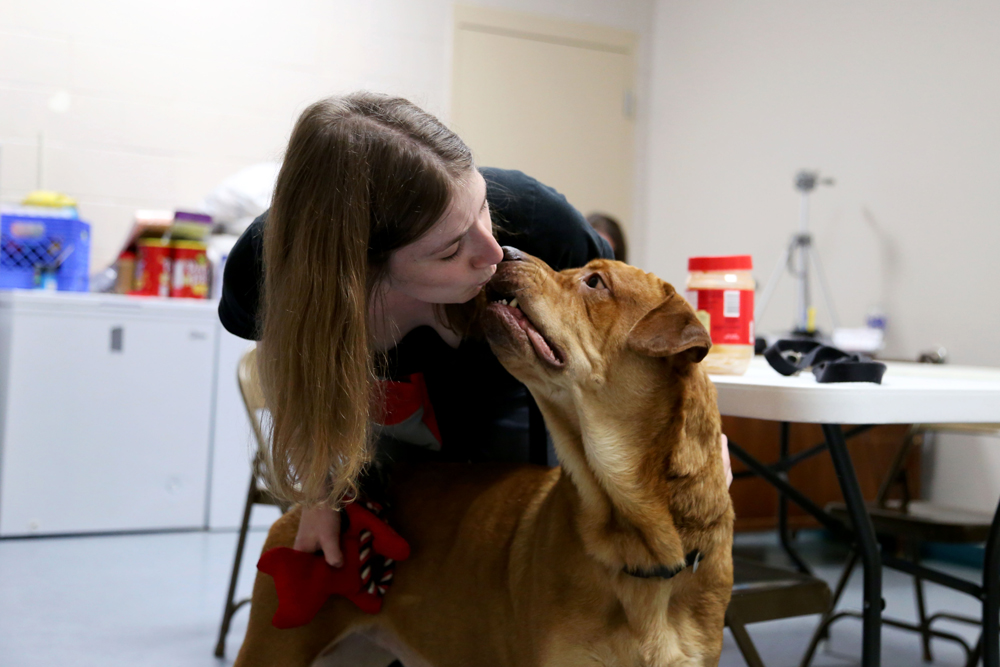
by JULIE GRAY
It’s not often that graduate student research makes headlines in outlets as varied as Martha Stewart Living and the financial media platform Bloomberg. But this spring, Samantha Cohen’s study of how people choose their canine companions did just that.
The study, entitled “Stated and revealed preferences in companion animal choice,” was published in the academic journal Behavior Research Methods. It started when Cohen was working on her Ph.D. in psychology at Indiana University. She and her dissertation advisor, Peter Todd, a professor of cognitive science, psychology, and informatics, co-authored the paper, which analyzed the results of a yearlong survey Cohen conducted at the City of Bloomington Animal Shelter. There, Cohen surveyed potential adopters, asking them what kind of dog they wanted to adopt. She then surveyed them again after they adopted a pet.
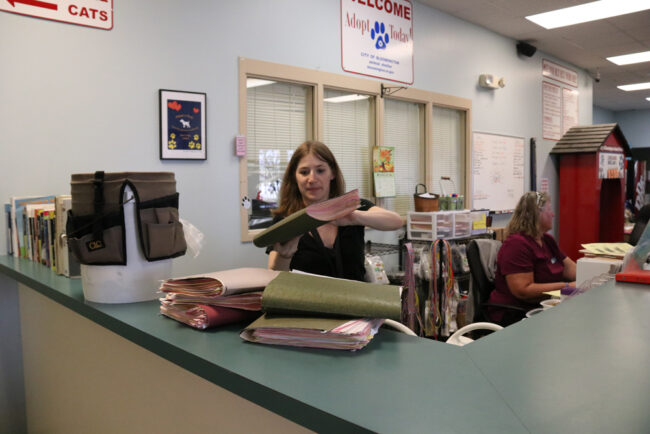
Before choosing a dog, adopters were asked to identify traits (such as color, age, sex, and intelligence) they were looking for in their new pet. What the researchers found was that certain traits, like age and playfulness, turned out to have more influence than the adopters originally indicated.
The takeaway from the study seems to be that when selecting a pet, just as when selecting a partner, people sometimes wind up with someone they didn’t set out to find.
The idea for the study came to Cohen while volunteering at the shelter. Another volunteer remarked that it was odd how often people adopted a dog that was the exact opposite of what they’d said they wanted. “I very offhandedly replied, ‘Well, yes, people do that all the time with their romantic partners,’” Cohen, now a postdoctoral researcher at the University of Virginia, recalls.
Despite all of the publicity, Cohen feels one of the most important study findings has been overlooked. “The qualities of dogs at the shelter as a whole align pretty well with what most adopters are looking for,” she says. So, she says, even if adopters picked dogs entirely at random, they’d likely go home happy.
Cohen would love to continue working with animal shelters and other nonprofits. “One of the things I like most about academia,” she says, “is that I can help people learn how to use data for the public good.”
See more photos from Samantha Cohen’s adoption study at the City of Bloomington Animal Shelter below.
